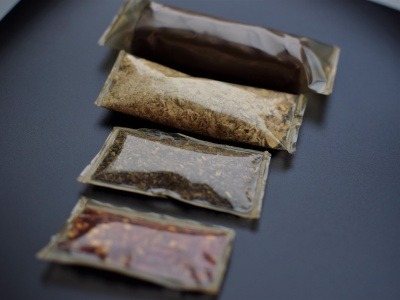Researchers find plant-based material to replace plastic
A plant protein with the same functionality as plastic that could serve as a fossil fuel-free alternative has been discovered by scientists at the University of Cambridge.
The breakthrough discovery was published in the renowned Nature Communications journal and detailed research led by Professor Tuomas Knowles at the University of Cambridge Knowles Lab.
 The plant protein, which the researchers say could serve as a fossil fuel-free alternative to single-use plastic, requires no chemical additives and decomposes naturally in the environment.
The plant protein, which the researchers say could serve as a fossil fuel-free alternative to single-use plastic, requires no chemical additives and decomposes naturally in the environment.
It is also a by-product of the agricultural industry, meaning it can be returned safely back to the soil after use.
In terms of functionality, the plant protein acts similarly to conventional single-use plastic, with the same strength and flexibility.
However, unlike bio-polymers, the protein does not require chemical cross-linking – the process for which often emits pollutants into the atmosphere.
Xampla, the Cambridge University spin-out commercialising the technology, is developing its applications to replace single-use plastics, including flexible packaging films, sachets, microcapsules found in home and personal care products, and carrier bags.
The breakthrough is the culmination of more than 10 years’ research into understanding how nature generates materials from proteins.
Research lead Professor Tuomas Knowles said: “One of the key breakthroughs is that we can supply this product on a large scale, and it can replace plastic in very specific applications.
“We have proved it’s possible to solve the single-use plastics problem.”
Dr Marc Rodriguez Garcia, co-author of the paper and Xampla’s Head of Research, said: “It’s amazing to realise that a discovery you make in a lab can have a big impact on solving a global problem.
“That’s essentially why we are doing this – we really love the science, but we also wanted to do something meaningful about solving the overwhelming problem of plastic waste.”
Sian Sutherland, Co-Founder of A Plastic Planet, said: “This is a huge breakthrough for all the naysayers who want to back the status quo and still tout recycling as the answer to the plastic crisis.
“We have to be forward-looking. We have to get excited about new technologies and materials because these are the innovations that will break our addiction to plastic.
“This is what the future must be about – no greenwashing, no fossil fuel reliance and new, scalable technologies that put the planet first.”






